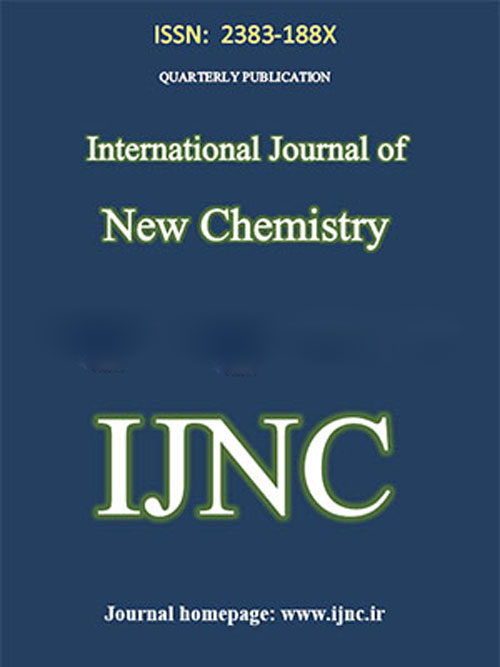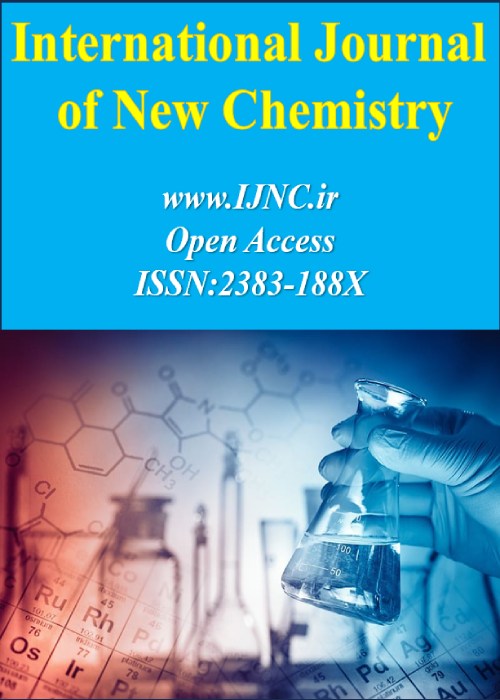فهرست مطالب

International Journal of new Chemistry
Volume:2 Issue: 1, Spring 2015
- تاریخ انتشار: 1394/01/20
- تعداد عناوین: 3
-
Pages 172-178The absorption of the H2S on the small boron nitride fullerene (B12N12) and its Al-inserted analog was theoretically analyzed by density functional theory. The structural stability was based on the minimum energy and non-complex vibrational frequencies. Different sites and orientations of H2S, using the monomer unit, were considered. Compared with the weak physisorption on the pristine B12N12, the H2S molecule presents strong physisorption on both Al-inserted fullerene, as indicated by the calculated geometrical structures and electronic properties for these systems. It is suggested that the Al-inserted B12N12 presents high sensitivity to H2S. Based on calculated results, the Al-inserted B12N12 is expected to be a potential novel sensor for detecting the presence of H2S.Keywords: Hydrogen sulfide, Boron Nitride Fullerene, B12N12, Al, inserted, Density Functional Theory Calculations
-
Pages 179-187A novel Zr,Ce-TiO2/SiO2 nanocomposite thin film was successfully prepared with various amounts of Zr4 and Ce4 as codopant ions for self-cleaning applications. A thin film was coated on a tile substrate by dip-coating and porous Zr,Ce-TiO2/SiO2 was obtained after heat treatment for 2 hours at 500 °C. The SEM images and XRD pattern showed that the optimum amount of doping ions in relation to Ti3 is 0.1%. In this circumstance, the most monotony of film was seen and the main formed phase was anatase. The sample structures were characterized by infrared spectroscopy. The nanocomposite films were found to be active for photocatalytic decomposition of methyl orange as an organic pollutant.Keywords: Codoped TiO2, Photocatalytic application, Self, cleaning, Visible light
-
Pages 189-198In this research at the first Enalapril drug and its fullerene derivative were optimized. NBO calculations and NMR for the complexes were carried out at the B3LYP/6-31G* quantum chemistry level. Different parameters such as energy levels, the amount of Chemical Shift in different atoms, the amount of HOMO/LUMO, chemical potential (µ ), chemical hardness (η), the coefficients of hybrid bonds (π, σ) and the orbital portion of the bonds p (π, σ) was performed. In another part, the valence electrons of atoms were compared. this drug as a major therapeutic category is Antihypertensive drug. In this study of fullerenes, we used nano drug carriers. The data in tables and graphs and shapes were compared and discussed.Keywords: Enalapril, Fullerenes, Chemical potential, Nano drug carriers


